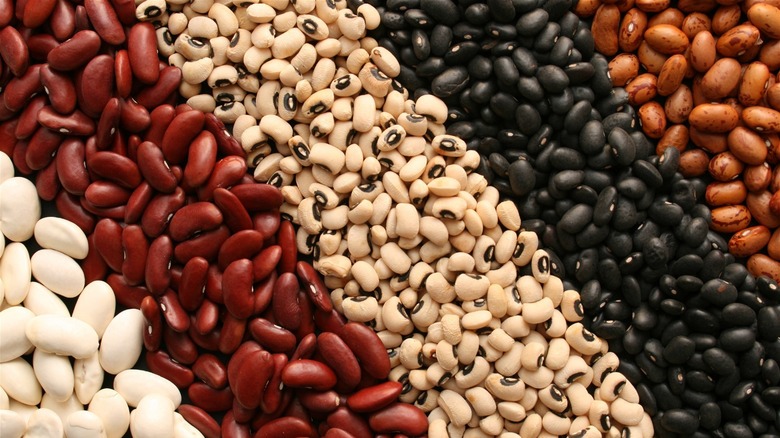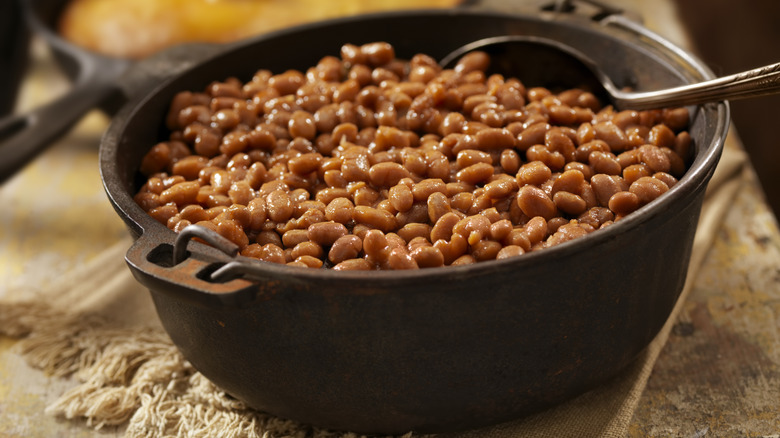Is Boston's 'Beantown' Nickname Actually Connected To The Food?
Boston's popular (and long-hated) nickname, "Beantown," is shrouded in theories that might explain why it was chosen to represent the city. In a survey of 1,000 people conducted by Bospar, Beantown ranked 5th in the list of nicknames that annoy Americans. The moniker probably started with Boston's booming rum trade in the 17th century. With rum production comes molasses, which was then used by locals to flavor baked beans. The meal was affordable and quick, so it became popular.
Later, the city's baseball team leaned into the popularity of Boston's beans. The Boston Beaneaters, which decades later would become the Braves and eventually move to Atlanta) operated from 1883 to 1911. It was quite successful, appearing in the World Series two times. Though the signature dish and the baseball team were likely the roots of the moniker's popularity, other things also helped cement the nickname as part of Boston's identity.
Further reasons for the nickname Bean Town
Besides Boston's history of preparing baked beans for merchants and other travelers, a couple of events held in the city helped propel the name Beantown into prominence. In 1890, Beverly Pottery Company provided bean pots to a convention held for Civil War veterans. It's possible those who received these pots helped coin the name.
Posters advertising the 1907 Old Home Week further promoted the name. Throughout the event, those who used to live in the area made a return visit. To spread the word, the posters included pictures of bean pots. Later in the century, "You don't know beans until you come to Boston" became a tourism slogan.
Despite the city's nickname, few Boston restaurants serve the famous baked beans these days. And most residents don't use the moniker either. Today, it's more of a tourist nickname. Perhaps over time, the name Beantown will fade. Its days definitely seem numbered.

